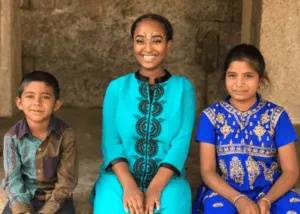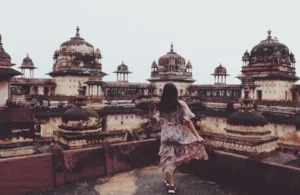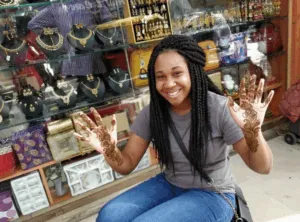Study Abroad in India
During your time studying abroad in India you can meet lots of new people, learn new languages, try delicious new foods, and create memories that will last a lifetime. India’s unique culture has been heavily influenced by its rich spiritual and religious traditions, and Hinduism, Buddhism, and Sikhism all originated there. You’ll get a chance to experience the enormous variety that India has to offer; there are literally hundreds of distinct languages and cultures.
Things to know
If you’re a vegetarian you’re in luck; vegetarianism is very common in India and you’ll have no problem finding lots of delicious foods to try! Indians typically eat with their right hand and the left hand is usually kept under the table. The principles of Mahatma Gandhi, including humility and nonviolence, are held in high reverence by most Indians. You’ll likely get to experience an Indian wedding – a days-long celebration with hundreds of people, complete with henna tattooes, colorful saris, and lots of dancing
In the months before your departure, AFSers have the opportunity to participate in various preparatory activities, including an online Student Learning Journey, which is an interactive course that brings AFSers from around the world together to learn how to develop essential global skills, intercultural communication techniques, and practice social impact, maximizing the outcomes of the AFS learning experience.
Shortly after arrival, you will attend an arrival orientation and get a crash course on Indian culture, living with a host family, safety, and support structures. After your arrival orientation, you’ll be on your way to meet your host family and may get a glimpse of the varied Indian countryside. You might see the massive Ganges River, vast deserts, fertile farmlands, and the majestic Himalayan Mountains in the distance. Personal styles and appearance also vary widely throughout India; you might see women wearing a bindi, or red dot on their foreheads, traditional saree, long fabric robes, or modern pantsuits. Many Indian men wear modern western style clothes. Wherever you go, you’re likely to smell wafts of delicious curry coming from peoples’ homes and local restaurants and see food carts with fried vegetables and fish lining the streets.


